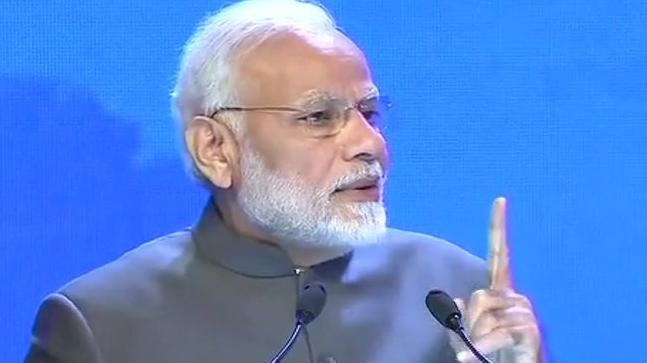Modi’s Act East Policy strategically more assertive, says think tank
| Date :08-Jul-2020 |

AMSTERDAM :
THE Act East Policy (AEP) devised by Prime Minister Narendra Modi at a regional summit in Myanmar in 2014 has shifted the geostrategic posture of India in the Indo-Pacific and reformulated New Delhi’s approach to one that is more strategically assertive, says a European think tank. “The AEP has expanded the operational scope of India’s earlier Look East Policy (LEP) beyond one that is merely focused on economics to one that integrates matters of security in the Indo-Pacific region.
This links the AEP as geostrategy to other regional geostrategies, resulting in a convergence of security aims and a subsequently emerging security cooperation,” the EFSAS said in its commentary. In comparison to the LEP, the “AEP is not a policy that has been put into legislation, but an overarching strategy that marks a transformation in how India addresses the shortcomings of the LEP and the geopolitical challenges of the 21st century, especially in regards to China.”
“Whilst the LEP was effectively an economic strategy, the AEP expands on this by adding a geostrategic defence component: In 2016, Prime Minister Modi argued for the enhancement of the security cooperation between India and ASEAN given the shared security threats of terrorism and radicalisation, with the cooperation between ASEAN and India, thus far mainly taking the form of bilateral security arrangements with ASEAN member states rather than ASEAN as such,” EFSAS said.
“This can be understood as a result of the partially differing security interests and strategies within ASEAN, and Indian security cooperation has been particularly expressive with Vietnam, Indonesia, and Malaysia,” it added. As part of the AEP, India has entered into a partnership with several nations like bilateral agreements between New Delhi and the respective administrations in Jakarta and Kuala Lumpur. Indonesia and India conducted joint naval controls since 2002, and a 2018 announcement of a strategic partnership extended this cooperation to joint military exercises, the sharing of best practices, and the enhanced coordination of military research.
Similarly, in 2015 India and Malaysia joined hands to focus on engaging in joint military exercises, cyber and naval security efforts. The think tank said, “The geopolitical dimensions of these security arrangements are key for Indian foreign policy — Indonesia and Malaysia are situated adjacent to the Lombok Strait and the Malacca Strait and ensuring access to these waterways is of key significance for India’s economic endeavours in the region and for the general tradability on international waters.